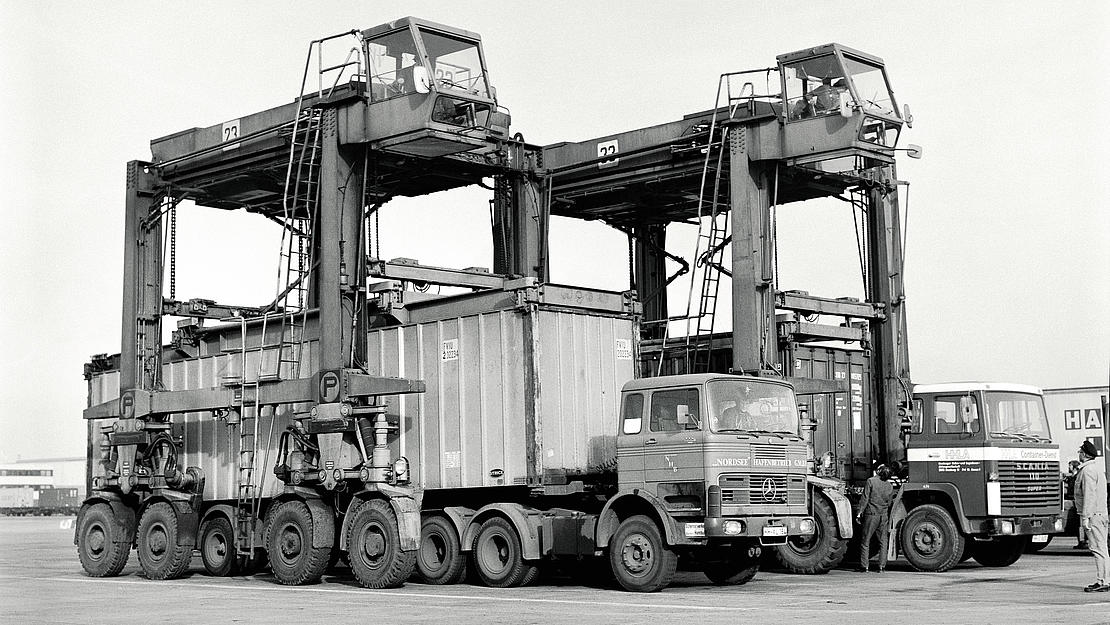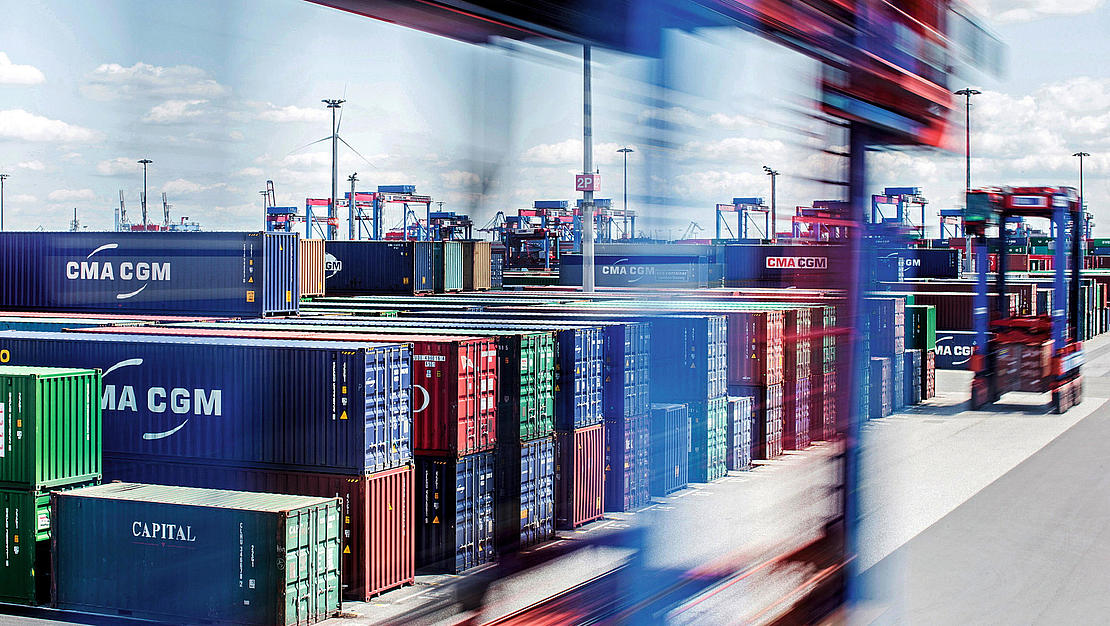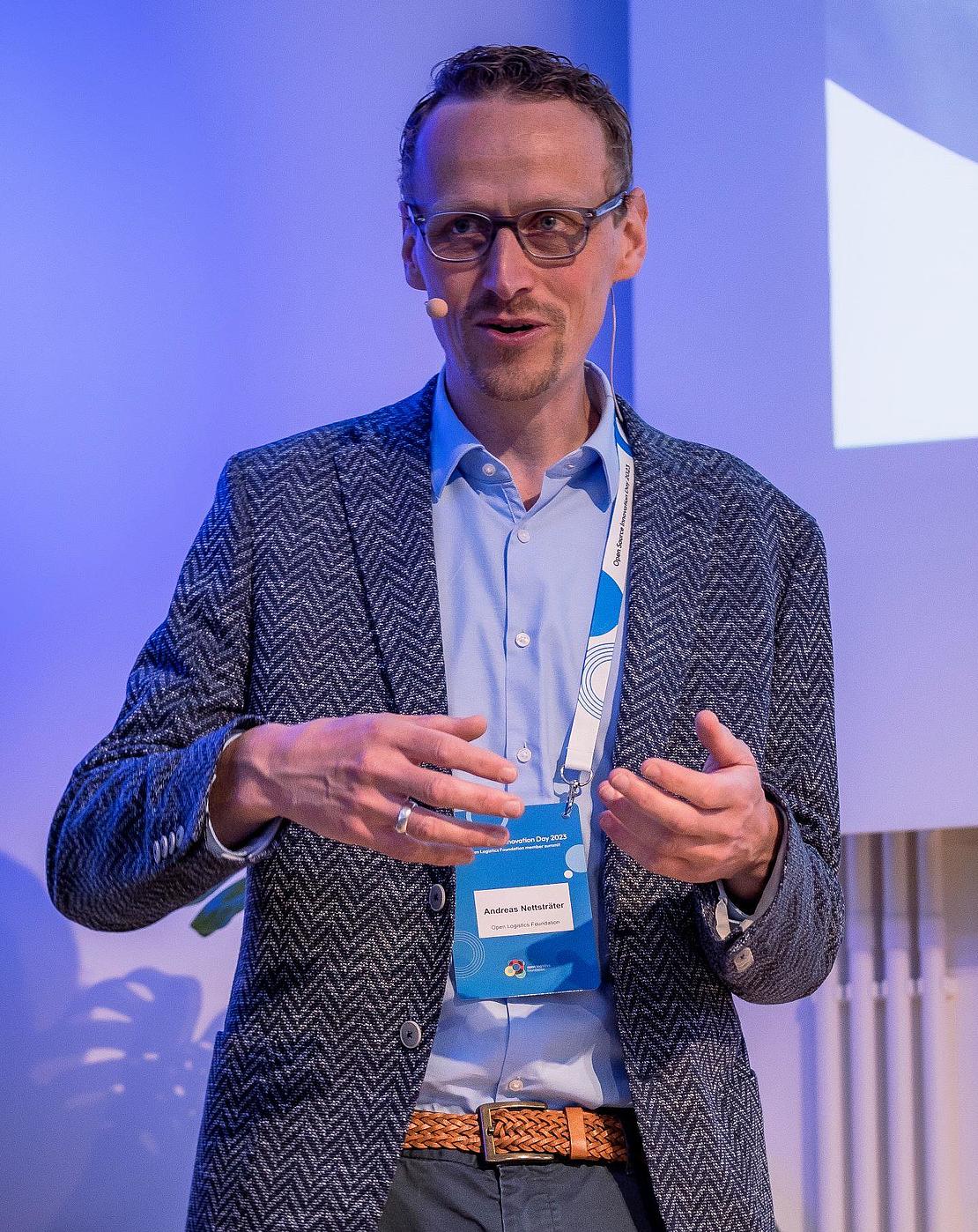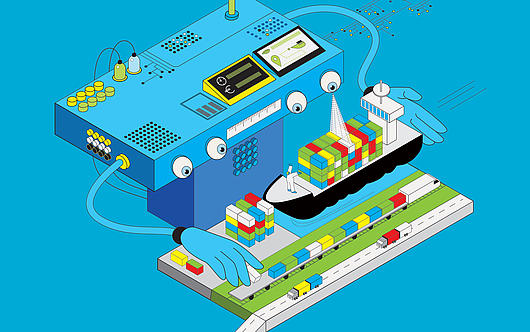
The container in its current standard dimensions was invented by American shipping entrepreneur Malcolm McLean in the 1950s. This invention not only made the loading and unloading of ships much more efficient but also revolutionised logistics as a whole. His solution was so groundbreaking that it was widely accepted by the market and established itself as the de facto standard. This even became the definition for unofficially but generally accepted product characteristics or technical solutions.

Malcolm McLean’s patented containers became so firmly established because he ceded his creation to the International Organization for Standardization without license fees. He hoped that logistics as a whole would benefit from it and that the success of his business would not depend on a single load carrier. And thus the container became that which our Open Logistics Foundation sees today as a commodity: a service which is not decisive to a company’s competitiveness and that can improve logistics as a whole.
Optimisation potential increased through digital logistics
Since Malcolm McLean’s time, logistics has become much more complex and its networks are continuously expanding at a rapid pace. Today, optimisation potential is not only harnessed through physical but also through digital logistics. In the 21st century, data interfaces are what containers were in the mid-1950s.

Interfaces ensure that the numerous stakeholders in logistics – on water, rails, roads and in the air – can interact among themselves in a perfectly coordinated manner. Whoever wants to overcome the different interfaces today should no longer go it alone. This realisation is slowly being accepted by logistics companies in Germany and Europe; they recognise the need for the joint development of open-source software.
Still many isolated solutions
From today’s perspective, the fact that there are so many parallel and thus isolated solutions for one and the same issue, particularly in logistics, seems almost paradox. That is because logistics, more so than any other industry, brings together and connects a large number of stakeholders – from international groups to local freight forwarders. Silo mentalities are not helpful in this case – especially in the digital era, where “interoperability” is a form of currency.
Extreme competition in logistics could be seen as a fundamental reason why companies focused primarily on their own activities in the past. However, the fear of using software based partially or entirely on open source has long since been overcome.
According to digital association Bitkom, seven out of ten companies in the German economy already use license-free software today – whether for internal communications, warehouse management or equipment control. Still, this also means that the decisive potential of the open-source approach remains unexploited, namely the joint development of software. And that is exactly what our organisation, the Open Logistics Foundation, wants to achieve.

Electronic waybills, shipment tracking and customs processes
The foundation was established at the end of 2021 by four internationally active logistics companies based in Germany: Dachser, DB Schenker, duisport/Duisburger Hafen and Rhenus Logistics. Since then, many more companies, logistics specialists and also IT and software providers from numerous countries have joined our ranks. We are bound by the belief that cooperation can make a significant contribution to the competitiveness of the logistics industry in Europe and around the world.
The cooperation focuses explicitly on the specific areas where companies do not compete at present but have nevertheless developed their own solutions, or “commodities”, so far. The current topics of the Open Logistics Foundation are, for example, electronic waybills in freight traffic and the “one record” standard in air cargo – for which there are already implementation references – as well as offering support to track shipments or with customs processes.
The Open Logistics Foundation enables companies to spread the costs and resources needed to develop software. At the same time – and this is probably the most important aspect – solutions developed jointly by many companies become prevalent on the market more quickly, and the wide acceptance of solutions leads to the creation of de facto standards.

Creating a joint understanding to solve problems
In this regard, the Open Logistics Foundation offers companies in the logistics industry – from logistics service providers to logistics IT companies and port operators – the space and conditions to develop open-source solutions based on fair and neutral processes driven by joint values and principles.
Within a global open-source community, companies can exchange ideas regarding current challenges that affect them all equally, create a joint understanding to solve problems as part of working groups as well as jointly develop and implement software within the framework of concrete projects. In this regard, the Open Logistics Foundation sees itself as an enabler of open-source solutions and accompanies the process in the role of moderator.
What distinguished Malcolm McLean, the inventor of the container, is also embraced by the open-source community of the Open Logistics Foundation. Here, silo mentalities have long since been vanquished by the open mindset of our members, the readiness to share knowledge and experience and the respectful collaboration on an equal footing.
Whoever is interested in the foundation or working together can get in touch with me!
Andreas Nettsträter: andreas.nettstraeter@openlogisticsfoundation.org
Or visit our website: https://www.openlogisticsfoundation.org/


